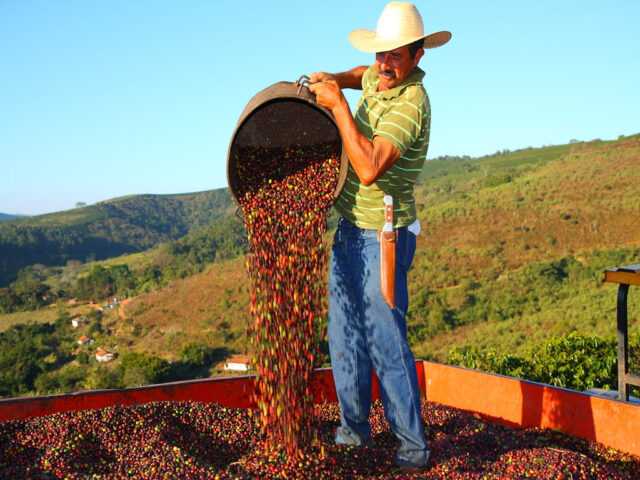SAO PAULO, Brazil — The trading pace for arabica and robusta coffee was slow in Brazil in November, due to both the price oscillations in the international market (for both varieties) and the holidays in Brazil and the United States during the month, says . Besides, harvesting stepped up in Vietnam, pressing down international quotes even more. In that scenario, Brazilian sellers stayed away from the spot market.
Robusta
The coffee growers from Espírito Santo State consulted by Cepea reported that, until mid-November, 70% of the beans from the 2018/19 crop had been traded. In Rondônia, the traded amount had reached between 90 and 95% of the total harvested.
On November 30, the CEPEA/ESALQ Index for the robusta type 6, screen 13, Espírito Santo State, closed at 325.58 BRL (84.39 USD) per 60-kilo bag, 1.5% down compared to that on October 31.
Arabica
From 50 to 80% of the 2018/19 season had been traded among the regions surveyed by Cepea until mid-November – mainly high quality beans, since the amount of lower quality coffee was smaller, due to favorable weather in Brazil.
According to Cepea collaborators, the arabica trading pace should not step up in the coming weeks, since farmers should wait for the beginning of 2019 to resume trading, due to concerns about fiscal issues. Thus, at the end of 2018, sales should be limited to the occasional needs of purchasers and sellers.
On November 30, the CEPEA/ESALQ Index for arabica coffee type 6 (delivered in São Paulo) closed at 432.54 BRL (112.12 USD) per bag 60-kilo bag, 1.8% down compared to that on October 31.
2019/20 crop
Higher moisture in November favored the development of coffee crops in Brazil, which should lead to a good production in the 2019/20 season. In light of the several blossoming episodes in 2018, crops were at different development stages last month, which may hamper the harvesting next year.
As for robusta, rains allowed the crops to recover and develop well in both Espírito Santo and Rondônia States.
Thus, most of the agents consulted by Cepea expect the 2019/20 output to be larger than the current (2018/19 season).
Although many crops were still in the fruitlet settlement stage in November, in some regions, the beans-filling stage had already begun.


















